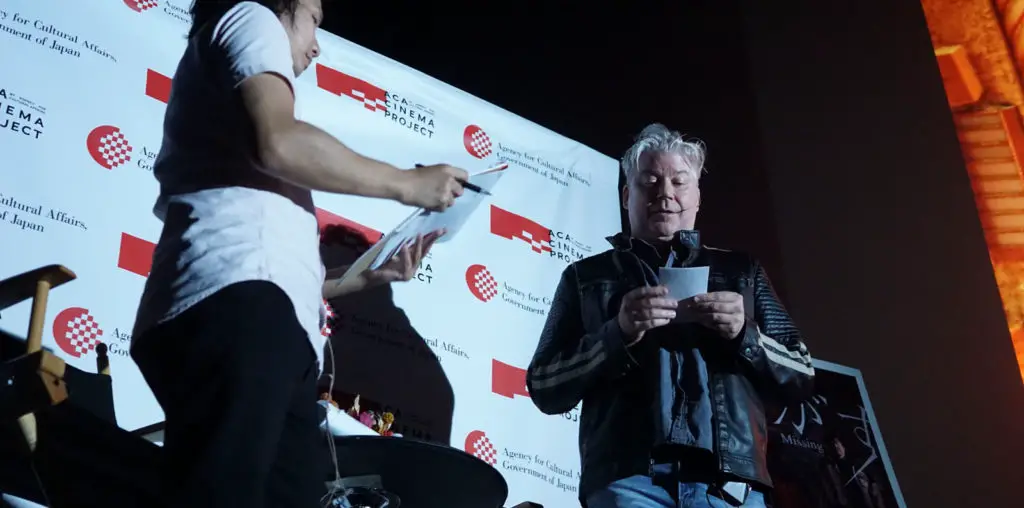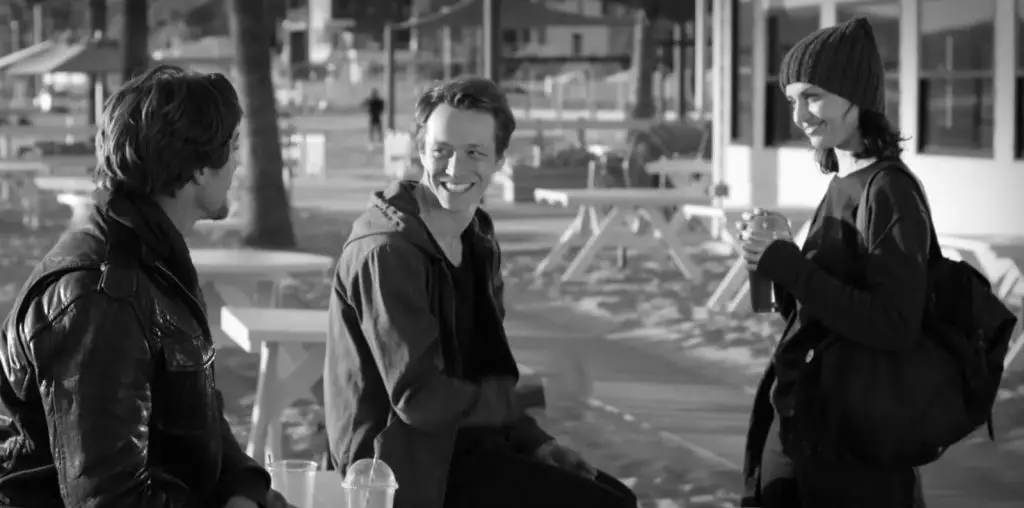
The Chevy Chase Show had one of the shortest runs in television history. After just six weeks, FOX mercifully pulled the plug, and in mid-show! This ungraceful and demoralizing exit followed Chevy’s self-conscious and anxiety-stricken attempts at making his guests — and himself — entertaining. He was moderately funny when he was doing the standard sketch-comedy stuff, but when his guests plonked themselves down next to him, Chevy would self-destruct: sweating, stuttering and surrendering to his inability to hit the right notes as a mostly improvisatory host.
But The Chevy Chase Show reached its lowest ebb when he asked close friend, Goldie Hawn, to be a guest on the show. As soon as he glimpsed Goldie’s golden-glazed cleavage, he suddenly forgot he was on TV; Chevy just started flirting with the giggly Goldie like they were both high school sophomores: his complexion became embarrassingly red-hued, and he was fidgeting with his standard-talk-show-issue cup, and squirming in his seat, presumably to hide his, erm, well, you get the picture! Needless to say, it wasn’t one of TV’s finer moments!
However, his forgettable foray into TV (assumedly) created a crisis of confidence in Chevy, and one that he wore like third-degree burns in any film he carelessly signed on for thereafter, films, despite not being well-written, or even funny, he thought might restore his powers. But The Chevy Chase Show was like a sliver of kryptonite that he swallowed but couldn’t crap out, and indie-film übermensch Kevin Smith, knew it.
In 1996, after he finished writing Chasing Amy, Smith found himself sitting across from then Universal Pictures boss, Stanley Snyder, who asked Smith if he’d like to make something again for Universal. Smith, still ired by his previous experience with Universal (Mallrats), said he wasn’t, but there is a property that they still had that he was interested in: Fletch.
Smith told Snyder that he wanted to make a second sequel to the 1985 original; Smith credits Gregory McDonald’s Fletch books for making him the writer that he is today.
“How I got to the dialogue that I eventually wound up writing had a lot to do with those books.”
When Smith was asked who he envisioned in the title role, he told Snyder there was only one person in the world that could play him, and that was Chevy Chase. Snyder replied, “Yeah, but he’s old. We’re not really in the Chevy Chase business anymore.”
However Smith and Chase were both given the benefit of the doubt, and Smith was sent by Snyder to see Brian Grazer of Imagine Entertainment to try and work something out. When Grazer reacted enthusiastically to Smith’s idea, Smith promptly signed a deal. But before he could put pen to paper, or finger to key, Smith got bogged down in the production of Dogma, and as a result, Fletch 3 was put on the back burner.
But Grazer was impatient; he hassled Smith, eventually forcing Fletch’s coddling caretaker to decide whether to finish Dogma or commence straight away on Fletch 3. In other words, Smith was given an ultimatum, and he made the only decision he could make. He had to finish his movie; Fletch 3 was dead, and Chevy Chase, who could already sniff the sweet fragrance of his own renaissance, was furious. He knew that Smith, a champion of Chevy’s, was the key to his salvation — and rebirth. Without Smith, without Fletch 3, Chevy was back head-butting the incessant demons in his own personal hell, while Hollywood went back to the task of trying to forget that Chevy Chase ever existed.
Did Chase simply implode, or was he blackballed by the establishment after The Chevy Chase Show? Perhaps he was ostracized because he was failing himself. Who knows? Smart money says that it was more complicated than that: Chevy Chase does carry with him a burdensome reputation for outspokenness. Like his alter-ego, Fletch, Chevy is supposed to be a real wise-a*s. It’s possible, in fact, it’s probable that he just burned too many powerful people. It happens; Hollywood has always been a political minefield. But what exactly happened?
“We’re not really in the Chevy Chase business anymore”, is the kind of cryptic comment that suggests the demise of Chevy Chase has a lot more to do with age and a bad imitation of David Letterman — and that’s all we really know.
A lot of you are probably saying, ‘who cares?’ But the inescapable fact is that Chevy Chase used to make the greater American populace — and most of the world for that matter — piss their pants. A failed experiment — and that’s all The Chevy Chase Show was, an experiment — doesn’t mean, shouldn’t mean, that you wake up one morning without your talents, or the opportunity to do with them what someone like Chevy had been doing with them, and very successfully, for the past twenty years.
Yes, Chevy had it, and I’m pretty sure he’s still got it. For some reason, perhaps for a multitude of reasons, Chevy Chase will never make us laugh again. If it’s not Chevy, then the powers that be need to spend a weekend watching Chevy Chase movies, the good ones.
If it is Chevy, and only Chevy, then the mines he’s been digging into his abilities for the last eight years have been too shallow; maybe Chevy has been watching his old stuff in a vain effort to crack his own code of comedy. Of course, that would explain the pathetic self-parody on show in everything he did post The Chevy Chase Show. But it doesn’t explain his perplexing fall from grace.
“Yeah, but he’s old”. Oh, hogwash.
Check out FILMTHREAT.com’s FEATURE ARCHIVES and read more insightful stories, expert analysis, gut-busting satire and caustic commentary!


